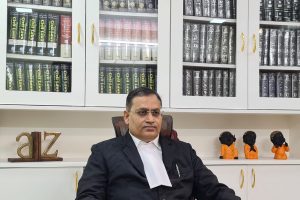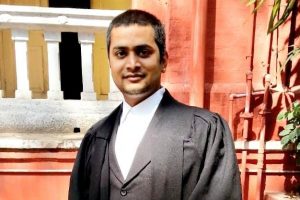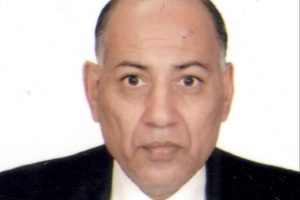Principle of Res-Judicata-The Backbone of Code of Civil Procedure 1908
If a Person contests his suit and the judgement came on merits arising from that suit then after some time the aggrieved person again files a suit involving of same parties, with same title, and with same question in which the earlier suit has been tried by the court which is competent on merits then what will be the situation at that time?
The answer to the above short query has been given under Section-11 of the Code of Civil Procedure, 1908 which clearly states that once the matter has been finally decided by court of competent jurisdiction on merits, then no party can be allowed to reopen that matter again in subsequent litigation. The bare language of Section-11 states that “No court shall be allowed to try any suit involving of same parties with same question which has been tried by that court or any other court competent to try that suit earlier on merits.”[1*] This means that the subsequent suits which are being filed in the courts, decided earlier by the court on merits will operates as Res-Judicata. This term itself very clear which means that Res is dispute and Judicata is adjudicated and this term collectively means that the dispute decided or has been adjudicated. This term is also known as Rule of Conclusiveness. This doctrine is based on the belief that in the larger interest of the public that all the matters involving disputes before civil courts and other courts in India may sooner or later may came to the end. This doctrine is also based on Justice, Equity and Good-Conscience which further means that there should not be multiplicity of disputes and the party which has been succeeded successfully may not be harassed by the opposite party by filing same suit of same question again in the court.
[1* https://lawtimesjournal.in/res-judicata-section-11-cpc]
The doctrine of Res-Judicata has long history in the legal systems of different parts of world and in India. This doctrine has the roots in Roman legal system and other ancient legal systems. U.S.A also inserted this doctrine in their seventh amendment. In England this doctrine is present but in a disorganised way but later England evolved this doctrine based on their legal systems. But its roots will be well understood by Hindu lawyer and Mohammedan Jurists. In Hindu Law this doctrine is earlier known as Purva Nyaya which means former judgement. This rule is harshly been used in earlier Hindu Laws and by Muslim Jurists in India. Later modern Indian legal system adopted this doctrine from the common law system of England and scrapped the ancient forms of Res-Judicata which is erroneous. The doctrine of Res-Judicata is being applied in civil suits, arbitration proceeding, taxation matters, industrial adjudications, writ petitions, administrative orders, interim orders, criminal proceedings etc. This doctrine is not exhaustive under Code of Civil Procedure,1908.
The Ingredients of Res-Judicata or the Rule of Conclusiveness are:
a) There must be Same Parties in Subsequent Suits– to prove the rule of Res-Judicata the parties in a subsequent suit must be same or between the same parties under whom they had a claim.
b) The Title of the Suit must be the same– another important ingredient is the title must be same by the contesting parties to prove the rule of Res-Judicata.
c) The Court has decided the matter on merits and should be competent to try that suit– the courts should hear all the parties on merits and should gave its judgement on merits.
d) The Subject-Matter of dispute must be same– the subject matter of dispute must be same in former and subsequent suits in order to attract this section-11, Code of Civil Procedure,1908.
Some Important Provisions of Res-Judicata.
Res-Judicata and Rule of Law– The Principle of Res-Judicata is broader Principle and has the universal application. This point has been proved in landmark Judgement of Supreme Court of India in Daryao v. State of Uttar Pradesh, AIR 1961 SC 1457 in which the Petitioners has filed a writ petition in Allahabad High Court under Article-226 and they were dismissed. Later the Petitioners again file the substantive petitions in the Supreme Court of India under Article-32 of Indian Constitution. The Hon’ble Bench dismissed the petitions of Petitioners as they operate as Res-Judicata.
Res-Judicata and Res-Sub Judice– Res-Judicata under Sec-11 of the Code of Civil Procedure,1908 is bar on the matter and trail which has been already been adjudicated whereas Res-Sub Judice means bar on the fresh matter and trail because the earlier matter on same facts and same parties with same title is pending before the court of law.
Performa Defendant and Representative Suit under Section-11 of C.P.C.– the Defendant against whom no relief is sought but his/her presence is necessary for the complete adjudication of suit is known as Performa Defendant. As no relief is being sought against him, a finding does not operate as Res-Judicata in the subsequent suits. On the other hand, Representative suits are that kind of suits which are filed in the representative capacity as different from personal capacity. In Ahmad Adam Sait v. M.E. Makhri, AIR 1964 SC 107 it was held that where the persons litigate bona-fide for the public right and all litigating in such suits are barred by Res-Judicata in the subsequent suits.
Constructive Res-Judicata– this is also one of the important provisions of section-11 of Code of Civil Procedure, 1908. This provision means that if the party in a suit could have taken the plea against his opponent, at the same time he could not be allowed to take that plea in the subsequent suits with same subject-matter on the grounds that he had not taken that plea in the former suit. The Hon’ble Supreme Court of India has given the landmark judgement in State of Uttar Pradesh v. Nawab Hussian, (1977) 2 SCC 806, a direct question arose before the Hon’ble Supreme Court whereby in this case A Sub-Inspector of Police was dismissed from the service by the DIG (Director General of Police). He challenged the order of his dismissal in High Court in a Writ Petition saying that he was not given reasonable opportunity of being heard by the authorities and later he took the additional grounds that he was appointed by IGP (Inspector General of Police) and he was removed by the DIG (Director General of Police). The latter has no power to dismiss him. The State contended that the additional ground taken by him is Res-Judicata. The State High Court allowed the petition of Sub-Inspector of Police. But State of U.P. has filed a appeal in Supreme Court of India whereby Hon’ble Bench of Court said that suit Sub-Inspector of Police was barred by Constructive Res-Judicata as court said that the plea was within the knowledge of plaintiff and could be taken earlier.
Res-Judicata Between Co-Plaintiffs and Co-Defendants– As there is Res-Judicata between Plaintiffs and Defendant in the same way there is Res-Judicata between Co-Plaintiffs and Co-Defendants on the grounds that: there is a dispute of interest between Co-Plaintiffs or Co-Defendants, it is necessary to decide the conflict in order to give the relief to Plaintiff or Defendant, the question between co-defendants or co-plaintiffs has been decided, the co-defendants are necessary or proper parties in a suit. In the another landmark Judgement of Iftikar Ahmed and Syed Meharban Ali, (1974) 2 SCC 151, the Hon’ble Bench of Supreme Court said that if there is a conflict between plaintiffs and matter is to be decided in order to give relief to Defendant and further the matter is decided then it will operate as Res-Judicata between co-plaintiffs in subsequent suits in future.
Res-Judicata in Writ Petitions-though Res-Judicata does not applied in writ petitions but there is no right ground to prevent the decisions in the matters in writ proceedings under Article-32 or Article-226 of Indian Constitution from operating as Res-Judicata in the subsequent proceedings. In MSM Sharma v. Dr Shree Krishna, AIR 1960 SC 1186, for the first time the Supreme Court of India held that section-11 of Code of Civil Procedure,1908 will be applied to even writ petitions also. Hon’ble Bench held that once the petition filed under Article-32 or Article-226 of the Indian Constitution is dismissed then subsequent petitions will be barred by Res-Judicata. The decision will bind the parties to file the subsequent petitions in the court of law unless the decision is reversed in the appeal.
Doctrine of Res-Judicata in Criminal Proceedings-as stated above this doctrine has the universal application. This rule not only applied to civil, administrative matters etc but also applied to criminal matters also. In Bhagat Ram v. State of Rajasthan, AIR 1972 SC 1502, held that once a person is acquitted or convicted by the competent criminal court of law he cannot once again be tried for same offence as it is barred by the doctrine of Res-Judicata.
Res-Judicata in Interim Orders– the doctrine of Res-Judicata is applied in the different stages of the proceedings in a suit. In Ajay Mohan v. H.N. Rai, AIR 2008 SC 804 held that if there is interim order decided by the court during the pendency of the suit then it will operate as Res-Judicata at all the subsequent suits. For example, orders of maintainability of suits, question regarding jurisdiction of courts etc if decided once by the court then it will not be reopened in same proceedings. The only remedy for the aggrieved party is to file an appeal against the interim order of lower court in the higher court of law.
Types of Courts–
a) Courts of Exclusive Jurisdiction- the courts of exclusive jurisdiction like revenue courts, land acquisition courts, administrative courts etc, any subsequent plea in these courts will operate as Res-Judicata.
b) Courts of Limited Jurisdiction- a decision on issue which is finally decided by the court of limited jurisdiction will also operate as Res-Judicata in the subsequent suit irrespective of the fact that the court of limited jurisdiction is not competent to try that suit. In Nabin Majhi v. Tela Majhi, AIR 1978 Cal 440, Hon’ble Division Bench of Calcutta High Court held that courts of limited jurisdiction are the courts other than ordinary courts like revenue courts, land acquisition courts etc and the decision of that courts will operate as Res-Judicata in the subsequent suits. But a court of limited pecuniary jurisdiction cannot be said to be a court of limited jurisdiction. If the former court is unable to try the suit due to limited pecuniary jurisdiction then the subsequent suits filed will not operate as Res-Judicata. In P.V.N. Devoki Amma v. P.V.N. Kunhi Raman Nair, 1980 AIR (Kerala) 230, Hon’ble Bench Division Bench of Kerala High Court held that decisions rendered even by the civils courts of limited pecuniary jurisdiction operate as Res-Judicata, fact that such court rendering decision is not competent to try subsequent suit is immaterial. Hon’ble Bench also held that court of limited jurisdiction is wide enough to include a court whose jurisdiction is subject to pecuniary limitation. This above Judgement did not go with the view held by Hon’ble Bench of Calcutta High Court in 1978. Later on, Supreme Court of India in 1993, in Sulochana Amma v. Narayanan Nair, 1994 AIR (SC) 152, overruled the Judgement Nabin Majhi v. Tela Maghi (Supra) given by Calcutta High Court held that if this judgement is followed then there will be unending litigation which would lead to conflicting of decisions and also held that High Court of Calcutta took a very narrow view limiting the scope of Explanation VIII to decisions of the courts of special jurisdictions like insolvency, land acquisition, rent controller, land revenue tribunal etc. It also held that the view point given in same proposition by Kerala High Court is broader and stands approved. Hon’ble Bench of Supreme Court also held in this case if the decree passed by the Rent Controller shall operate as Res-Judicata but a decree of the District Civil Judge Junior Division will not operate as Res-Judicata because of limited pecuniary jurisdiction of Civil Judge Junior Division ,though there is same officer who decides the case as Rent Controller and also as a Civil Judge Junior Division.
C) Courts of Concurrent Jurisdiction- if the former suit is decided by the court of concurrent jurisdiction having competence to try the subsequent suits then decision given by it will operate as Res-Judicata in the subsequent suits.
Concluding Remarks
The above stated contentions are those where the rule of Res-Judicata is applied but there are some contentions where this rule is not applied as they are the exceptions to the rule of Res-Judicata or the rule of Conclusiveness and these are the cases in which the decree is obtained by fraud then the provision of sec-11 of Code of Civil Procedure,1908 will not applied, when the previous Special Leave Petition in the Supreme Court of India is dismissed without the speaking order there also sec-11 of Code of Civil Procedure,1908 will not applied, where the party waives off the plea of Res-Judicata or they did not informed the court in the subsequent proceedings that the matter is barred under sec-11 of Code of Civil Procedure,1908 then its provisions will not be applied, where the court which tries the suit is incompetent or having no jurisdiction to try the suit then in subsequent proceedings the matter will not be barred by doctrine of Res-Judicata, when there are change in the circumstances and there is change in law and that changed law created new rights and new facts then subsequent proceedings of suit will not be barred by Res-Judicata Principle. Mere Findings of the Court will not operate as Res-Judicata this view point has been given by Hon’ble Supreme Court of India in Ganga Bai v. Vijay Kumar and others, 1974 AIR (SC) 1126 held that Appeal in High Court will lie only against the decree and order passed by the lower court but not lie on the findings given by the lower court. Also, In Smt. Daropati Devi v. Sohan Lal and another, 1984 (1) RLR 414, in this case it was held that Plea must be taken by Respondents in their written statements that the suit is barred by Res-Judicata. If no Plea is taken by Respondents in written statements of Res-Judicata then there cannot be applicability of Doctrine of Res-Judicata
Lastly, by explaining all the important points above in this article regarding the rule of Conclusiveness or Principle of Res-Judicata, the reader will come to know that Principle of Res-Judicata is the backbone of Code of Civil Procedure,1908 and also this is one of the most important principle in the Code of Civil Procedure, 1908.
© Chawla Publications (P) Ltd.






























